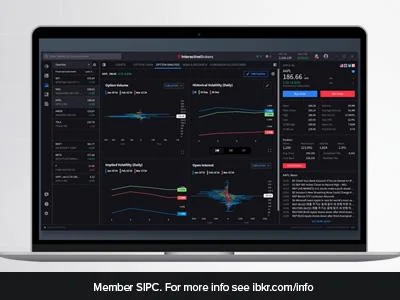Copyright ZeroHedge

By Michael Every of Rabobank Remember when it used to be about PMIs? According to the Wall Street Journal, Trump officials torpedoed Nvidia’s push to export Blackwell AI chips to China, Secretary of State Rubio, USTR Greer, and Commerce Secretary Lutnick all opposing. On the other hand, the US will allow Microsoft to send Nvidia AI chips to the UAE for the first time as part of a vast ramp-up in data-centre and AI development there. It will find out if the UAE keeps hold of them or sells them on in time, as both the Philippines and the UAE apply to join the CPTPP, which China also wants in to. The scale and speed of AI --and related energy-- rollouts is staggering. OpenAI just agreed a $38bn deal with Amazon, for example. However, Europe remains almost entirely absent from this process: is that part of a ‘strategic autonomy’? Tellingly, ‘The EU can’t figure out what to do about ChatGPT’, says Politico – and they don’t mean creating one, just regulating the existing version. This surge in capex is inflationary, as data centers eat up resources and gorge on electricity. Indeed, as US Secretary of the Interior Burgum, speaking in the UAE, stated, “Trillions of dollars are going to end up in the places that have low electricity prices," the US has signed an $80bn nuclear reactor deal, Glencore plans to shut Canada’s largest copper metal operation over (electricity) costs, Australia’s Liberal-National political coalition, in place since 1923, may fracture over the Nats’ rejection of net zero or the Libs could follow, while China may have reached a “fission-based innovation poised to reshape clean, sustainable nuclear power” by ‘breeding’ uranium from thorium. Yet AI is simultaneously deflationary if it means demand for workers --particularly younger ones already moving to the radical ends of the political spectrum-- collapses. The Financial Times just carried an op-ed arguing for universal basic capital, where every citizen is given a financial stake in AI firms to ensure social stability. (Though if nobody needs to work, how this differs from universal basic income is unclear: and is this a Speenhamland bare minimum or a Judge Dredd higher income which still drives people insane from a lack of useful work?) The same deflation is true if AI is a bubble. That’s as the WSJ argues ‘The Microchip Era Is About to End’ because “The future is in wafers. Data centres will be the size of a box, not vast energy-hogging structures,” and asks, ‘Is OpenAI Becoming Too Big to Fail?’ because “Sam Altman’s ability to intertwine the startup throughout major tech players puts it at the nexus of a vital part of the US economy.” Whatever happens next, whether the PMI was 0.1 or 0.2 higher or lower than the consensus guess doesn’t matter much. The good old days when a career in macro strategy could boil down to iterations of that coincident-commentary game is over: AI is already capable of doing it better. Indeed, the irrelevance of most data is not only underlined by the fact that we don’t have key US releases at the moment --and it doesn’t make any difference to our understanding of where we ultimately end up-- but by developments in geopolitics and geoeconomics. Trump said he doubts the US will go to war with Venezuela, but he thinks Maduro’s “days are numbered”. Why would that be the case if the US isn’t going to do anything? Meanwhile, the 2025 Nobel Peace Prize winner María Corina Machado was on social media underlining how juicy the resources in her country are, and how they will only be properly utilised under what sounds like US leadership. Try factoring that in to your forecasts. At the same time, there are reports that the US is preparing troops for a ground invasion in Mexico to go after drug cartels: one would assume that this is in coordination with the Mexican government, where a local politician was just murdered by drug gangs. In geoeconomics, all serious views of the recent ‘US-China deal are this is just a metaphorical ceasefire to (literally) rearm, not any ‘peace’, and it is when not if we get further escalation. Supporting that view from one side, the White House just struck a $1.4bn deal with rare-earth magnet startups Vulcan Elements and ReElement Technologies. From the other, besides China introducing new export controls on silver, antimony, and tungsten, Nexperia’s China plant has told local firms that it can meet chip orders despite suspended supply from European fabs previously in the same group. Europe is only going to get its own chip supplies again as part of the deal that the US struck last week: the EU’s own statecraft failed to achieve anything. On which front, two pictures of the Trump-Xi meeting in progress have appeared on social media. In one, Trump is holding up a card to Xi, which we can only see the back of; in the second Xi is laughing. As somebody said yesterday, Trump may have written on it: “The EU will use their trade bazooka.” The EU also thinks it may have been left out of China’s easing of export controls on rare earths. The US press release said last week’s one-year deal was global, but China hasn’t told Europe this is the case yet. If it isn’t then it will be easy to predict what the manufacturing PMI numbers will look like --like they did during Covid-- and no monthly higher/lower or econometrics, just geoeconomics, could have told you that was a possible outcome. The humiliation gets worse for Europe in that the US is accused of “threatening EU diplomats” during its bid to kill new green shipping rules, in which it succeeded; relatedly, Qatar has reiterated if the EU does not water down its sustainability laws it will cease delivering LNG to the bloc; and left-wing parties in the EU parliament are going to challenge the EU-Mercosur free trade deal. In EU politics, as Czech billionaire Babiš inches closer to PM, the FT op-eds that ‘The far right can win in Europe but it struggles to govern’ --then again, who doesn’t?-- and that, “The continent’s political future could be defined by a never-ending struggle between the centre and the radical right.” But what does that mean for the PMI, please? In US politics, there are new signs that after today’s elections, more on which tomorrow, the government shutdown may finally end, with Congress eyeing a spending bill through January. Of course, that could have an impact on the ISM, but it isn’t economics or econometrics at work.



